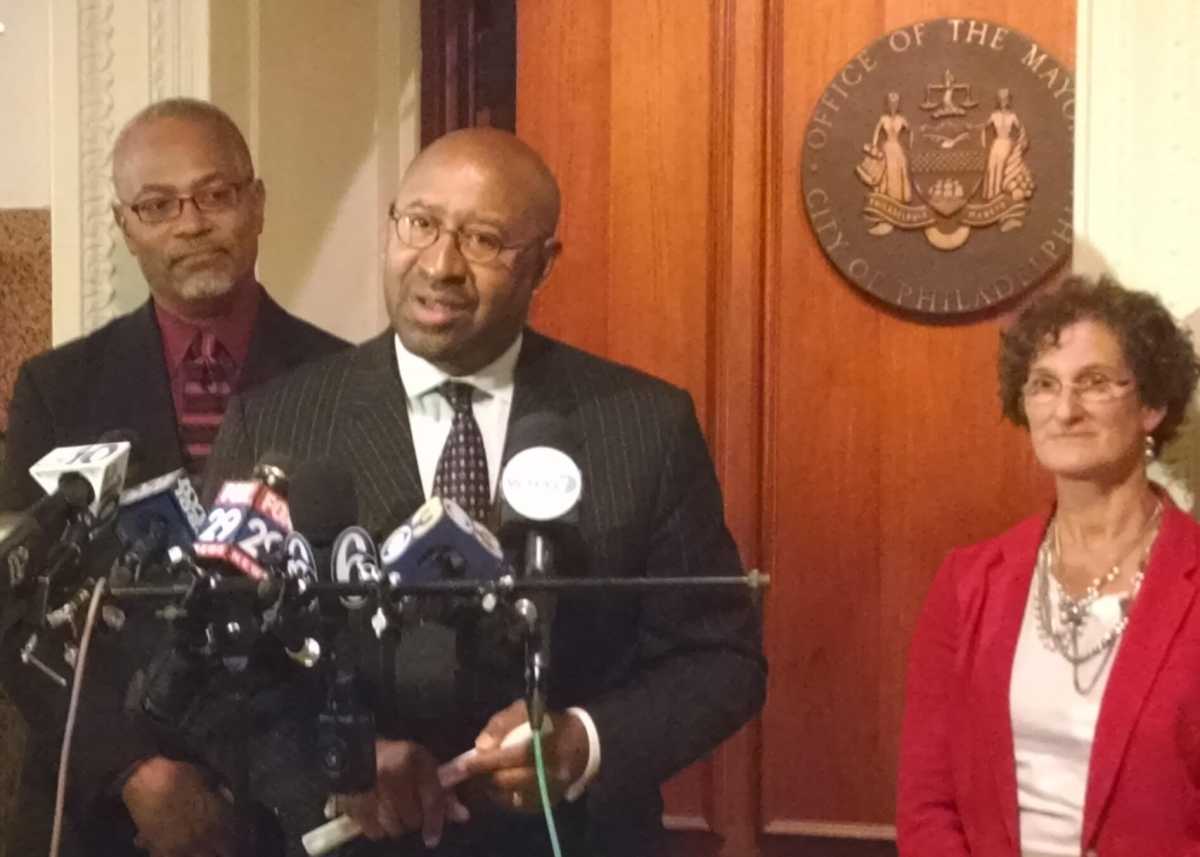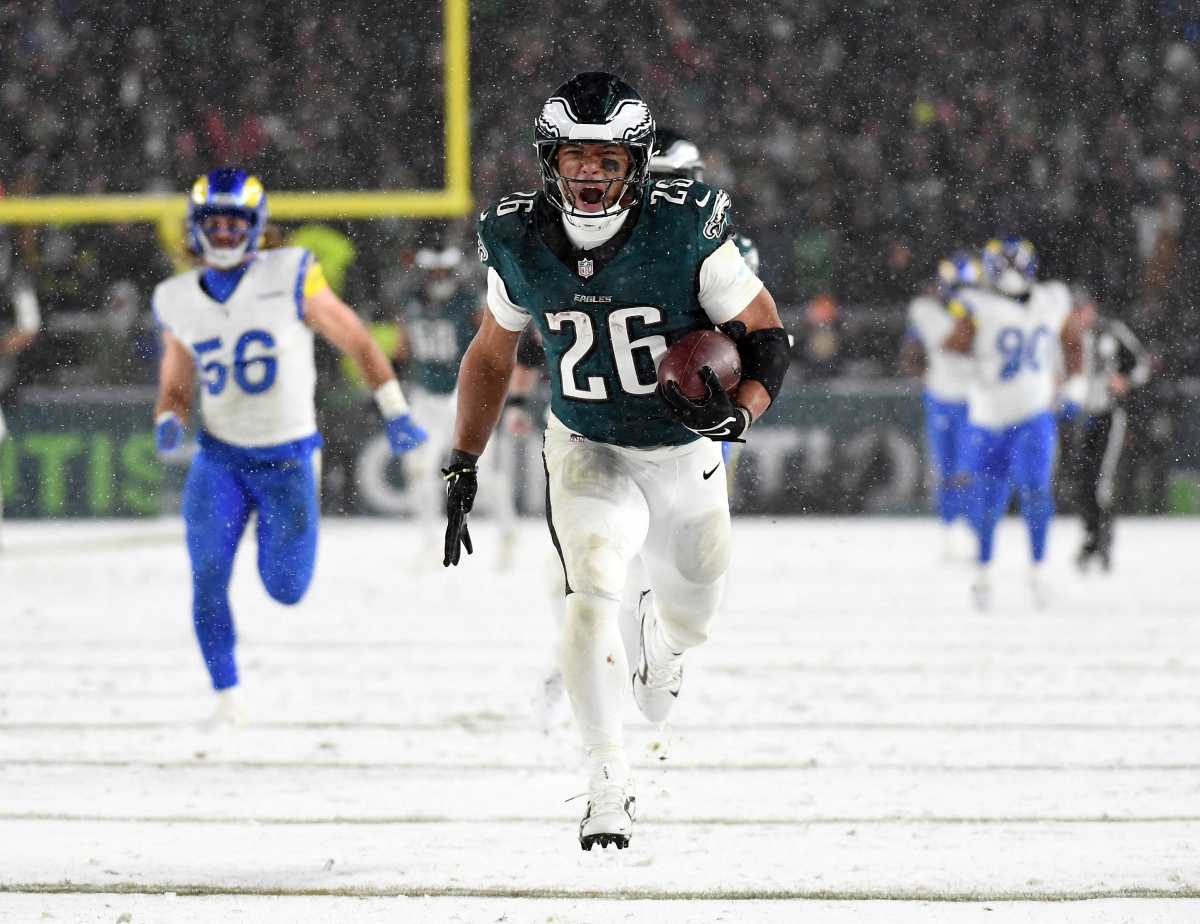“When I left office in 2016, I assure you that the last thing I thought that I would do is write a book,“ said Michael Nutter, the two-term Philly mayor who, since leaving City Hall two years ago, has worked as a CNN on-air contributor and faculty member of Columbia University’s School of International and Public Affairs.
And he did write that book, after all. “Mayor: The Best Job in Politics,” from the University of Pennsylvania’s Penn Press, was written because he figured that, “there are a lot of people who are curious about public policy and how things get done here,” as he put it.
Metro spoke to Nutter on a busy morning before his upcoming visit to the National Constitution Center (Jan. 31) to discuss what it meant to meant to be an author and a big city boss.
METRO: In the book, you write about coming to City Council from the 4th District in 1992 and immediately setting up meetings between the community and the police to improve relations. Twenty-six years later, relations still seem strained. How do you see that situation’s evolution?
Nutter: Overall, I believe there has been progress. Things have been improved, but certainly the challenges exist. This is kind of issue – police and community relations – to equate it with other parts of governmen, it’s not like filling a pothole. Come out fill it with asphalt and you’re fine for a while. Move on. Community and police relations are an hour-to-hour endeavor. As a city and as a government, you never stop working on this.
There are around 6,500 very brave men and women who wear the uniform and who – in my opinion – try to do the best they can under very difficult and many times very dangerous circumstances. Often they’re dealing with the most difficult and dangerous people in this city and everyone in between. At any moment, things can go wrong, go haywire, and very bad quickly. There’s the training that officers get and the mindset that they have coming into the job that figures into it all – as well as the perception of our citizens. The citizens too, have to wonder, “Are the police for me or against me?” almost automatically. Most encounters go fine. No problem. Some don’t. Plus today’s challenges are radically different than those in the early 90s. This is something, however, that we must work on every day.
M: Your terms as mayor mostly coincided with Barack Obama’s time as our first African-American President. What can you say about such synergy?
N: I could not have imagined when I was running in 2006-07 that for seven of my eight years in office I would have the honor of serving with the first black president of the U.S. I didn’t know that would even happen in my lifetime. President Obama will one day – if not already – be seen as one of our greatest leaders.
But as a black guy from West Philly and he being from Chicago, that synergy you mentioned and our rapport – it was great to have close contact with him. As a public servant, it just doesn’t get better than that. Her cared about cities and people and was kind and compassionate. I received a lot of support from him – he became a real role model to me and many other public servants regardless of our race.
M: Two of your most unpopular moves were the cigarette smoking ban when you were still a Councilman, and the upswing in the property tax during your mayoral term. Which move was the least popular or gave you the most grief?
N: Prohibiting smoking. That was a six-year fight and people were really upset–especially industries that had a vested interest in that. Ultimately though, literally 10 years later, I don’t know that anyone wants to return to how it used to be with buildings and clubs. So that’s a good thing.
On the other hand, no one loves to pay more property tax. That was a public policy decision. I don’t like property taxes going up, but when you’re in an economic meltdown with a city on the verge of running out of money, and schools going unfunded, the job of mayor doesn’t mean doing what you want to do. It means doing what you have to do. I was not going to see the city with no money or our schools – more importantly, our children – dwindling. At that point it’s not about you or your political standing. You have to do what you have to do and do your best to explain it to the public.
M: You wrote that when you took the mayor’s office, this city’s population was in a sharp decline – something that you pushed and saw increase handsomely. How do you believe you capitalized on the advances made by the previous administrations, and do you ever wonder if you did too good of a job now that a glut of condominiums is erasing much of the face of old Philly?
N: Philadelphia evolves, continues to make and remake itself. In the early 1900s, as the city moved from being an international port city of the 1800s and a manufacturing workshop to the world crafting everything from locomotives to Stetson hats and everything in-between, I’m sure people at the time were like, ‘Oh my goodness, the city is changing.’
I had the benefit of seeing up-close Mayors Goode, Rendell and Street deal with financial challenges particular to Philadelphia. Rendell took a lot of measures that helped to set straight the fiscal status of the city. Moving into the 2000s and Street’s idea of neighborhood services and quality of life issues – to say nothing of Frank DiCicco’s ten-year tax abatement–they really jump-started the Philly real estate market from that point forward.
The growth of the Philadelphia Navy Yard, the city’s arts and culture scene, the promotion of the city at large – that was during my tenure. Philly is a hip and cool place not-withstanding the continued challenges of race relations, poverty and crime – all the things big cities confront daily. Yes we have a lot of new condos – people and corporations want to be in this city which is great progress – but there is also a need for affordable housing and a desperate need to end homelessness.
M: You mention in the book how on both occasions when you ran that you were savaged – by fellow politicians running against you, by people on the street. That’s the political ball game. How did you use such negativity to your advantage?
N: We used to call that home training in my generation. I was fortunate enough to have both parents and one of my grandmothers living in our house growing up. They emphasized kindness and patience and good manners: to treat people decently. They fueled my personality. And you’re right – that’s politics. Sometimes it’s not personal. Sometimes it is. Ultimately it is public service.
These are the hurdles you have to climb. I wasn’t so hung up on my feelings. It’s not about you. My concerns were what to do about reducing crime, how do we get more children to graduate school? And I had the support of my wife and family as well as other political friends and associates. I wanted to serve. Those are the challenges you have to get through.
Nutter will deliver a talk, “My Life In Public Service” at the National Constitution Center on Jan. 31 at 6:30 p.m. Get tickets at ConstitutionCenter.org.
























